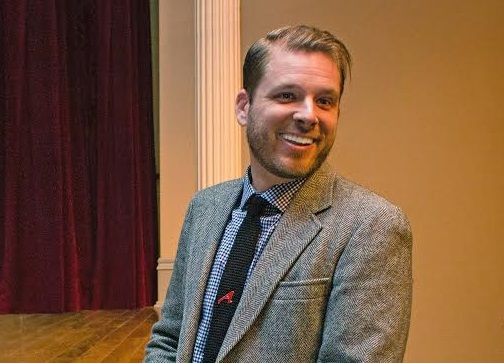‘Don’t Pray For Brussels,’ Says Attorney Who Champions Freedom From Religion

When Andrew Seidel woke up Tuesday morning and learned of the terrorist attacks in Brussels, he felt compelled to speak out. After a tragedy like that, many people take to social media to share prayers for the victims. But on Tuesday, Seidel did the opposite, making a Facebook post urging people not to pray. The post went viral — and inspired passionate feelings in people who either reviled or applauded his message.
“To everyone who suggests that we pray for Brussels, more religion is not the answer to this problem. And while those prayers might make you feel good, that’s all they are doing,” wrote Seidel.
“Instead, try donating to a charity, like the Red Cross or Doctors Without Borders/Médecins Sans Frontières (MSF), that actually gets on the ground and helps people,” he continued. “Or donate to an anti-extremist charity the Maajid Nawaz’s Quilliam Foundation and help fight what is likely the cause of these attacks.”
Seidel concluded platitudes and hashtags like #PrayForBrussels don’t do anything to help victims or prevent future attacks.
“Pray if you must, but in addition to action, not as a substitute, and don't expect much from your prayers. Religion is not the solution, it’s the problem. #PrayForBrussels? Not so much,” he wrote.
The post caught fire and has been “liked” by more than 8,500 people and shared 4,600 times. Seidel didn’t expect it to have such a wide reach, but he said cultural attitudes are changing. An attorney at the Freedom from Religion Foundation, an organization that promotes nontheism and champions the separation of church and state, Seidel often takes on cases that violate that principle.
“Whenever there’s a tragedy like this, the basic human impulse is empathy and to help. And when you focus that empathy and that instinct instead on praying, it’s being wasted. Praying is not effective,” Seidel told International Business Times. “It’s often a platitude that substitutes for real action.”
Seidel says the cause of many of the injustices in the world are the result of religion.
“There is a general belief that faith is a virtue. That’s absolutely not true. The willingness to believe anything without evidence and to stand by that belief is humanity’s greatest liability. And we saw that in action in Brussels,” he said.
Seidel isn’t the first to express such a sentiment following a tragedy. After the San Bernardino shootings in California last December. Sen. Chris Murphy, D-Conn., tweeted: “Your ‘thoughts’ should be about steps to take to stop this carnage. Your ‘prayers’ should be for forgiveness if you do nothing — again.”
Your "thoughts" should be about steps to take to stop this carnage. Your "prayers" should be for forgiveness if you do nothing - again.
— Chris Murphy (@ChrisMurphyCT) December 2, 2015
The senator was criticized for his comments, but later issued a statement clarifying that it was up to lawmakers to take action. “As we await the facts from the chaos on the ground, I can only pray that America’s leaders will do something — anything — that prevents more communities from knowing this sorrow,” Murphy said.
But the New York Daily News was not as delicate. Its front page after the San Bernardino shooting blared the headline “God Isn’t Fixing This,” alongside tweets from GOP lawmakers who ignore the issue of gun control but post messages about praying for victims. Its cover image was retweeted more than 23,000 times on Twitter.
Seidel says that moments like this — along with the changing demographics of this country — give him hope.
“Things are changing very rapidly in the U.S. Nonreligious Americans is the fastest growing group in the country by identification so far,” he said, referring to a 2015 Pew Research Center study that found Americans who are agnostic or atheist make up 7.1 percent of the population, up from 4 percent in 2007.
Of course, not everyone who read Seidel’s plea agreed with him. In the comments, some critics said prayer does not preclude people from taking action like making charitable donations.
An early look at tomorrow’s front page…
— New York Daily News (@NYDailyNews) December 3, 2015
GOD ISN’T FIXING THIS: https://t.co/eKUg5f03ec pic.twitter.com/j4gEFg9YtJ
“It’s rather presumptuous to assume people who pray are not also doing what they can in other ways too, such as donating to charity. Prayer may mean nothing to nonbelievers but it focuses the mind of believers and as a result it is likely that positive action will follow,” one Facebook user commented.
Seidel acknowledges that the two can go hand in hand. “But what I’m trying to get at is that for a lot of people, praying is enough. That is the problem, because it’s not doing anything but it lets them feel like they’re doing something,” he said.
But he says he is optimistic about the future. “Thomas Payne said that the mind, once enlightened, cannot again become dark. To me, that sums up the progress we’re seeing in the U.S. and around the world,” he said. “The times really are changing.”
© Copyright IBTimes 2024. All rights reserved.





















